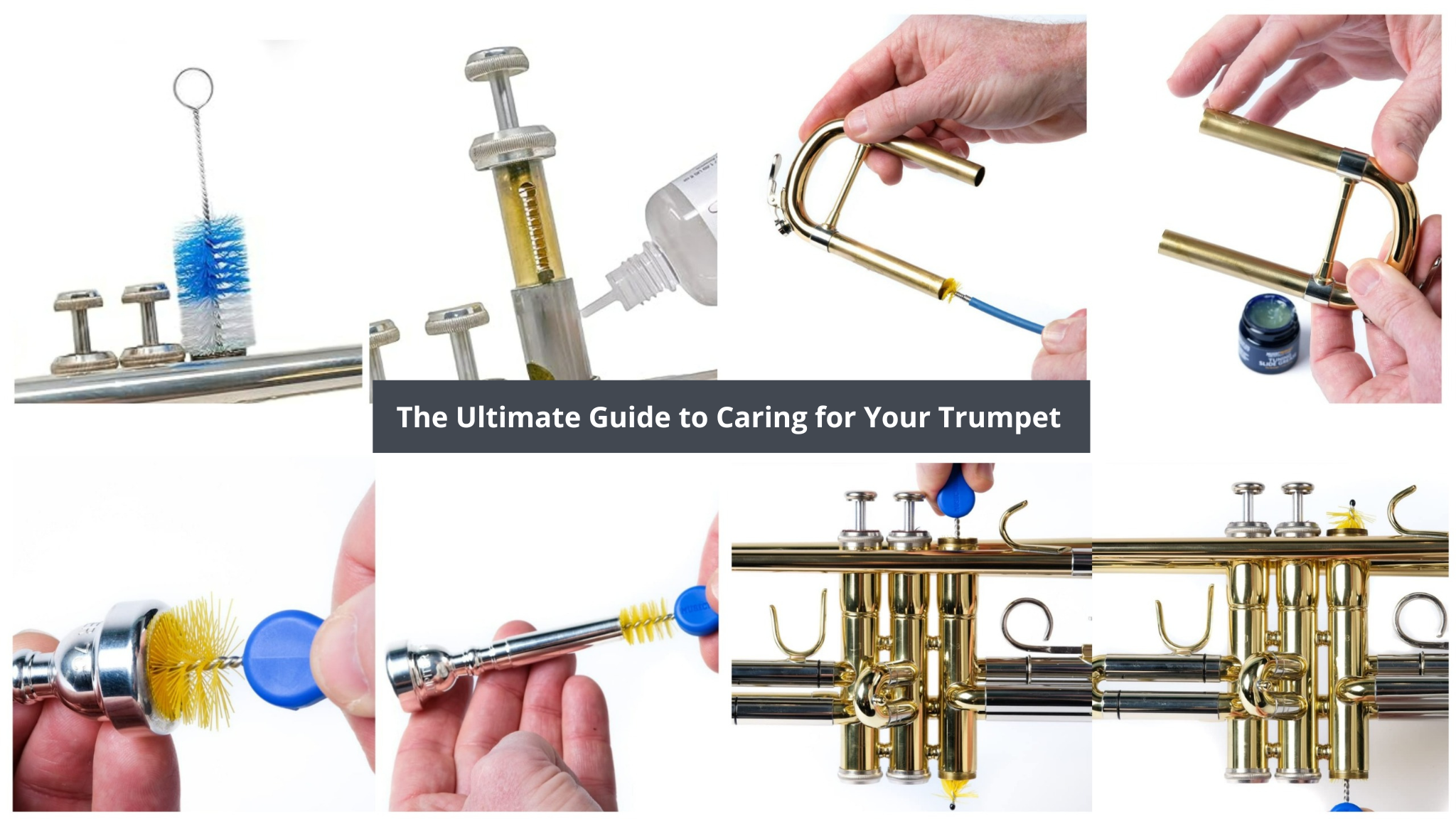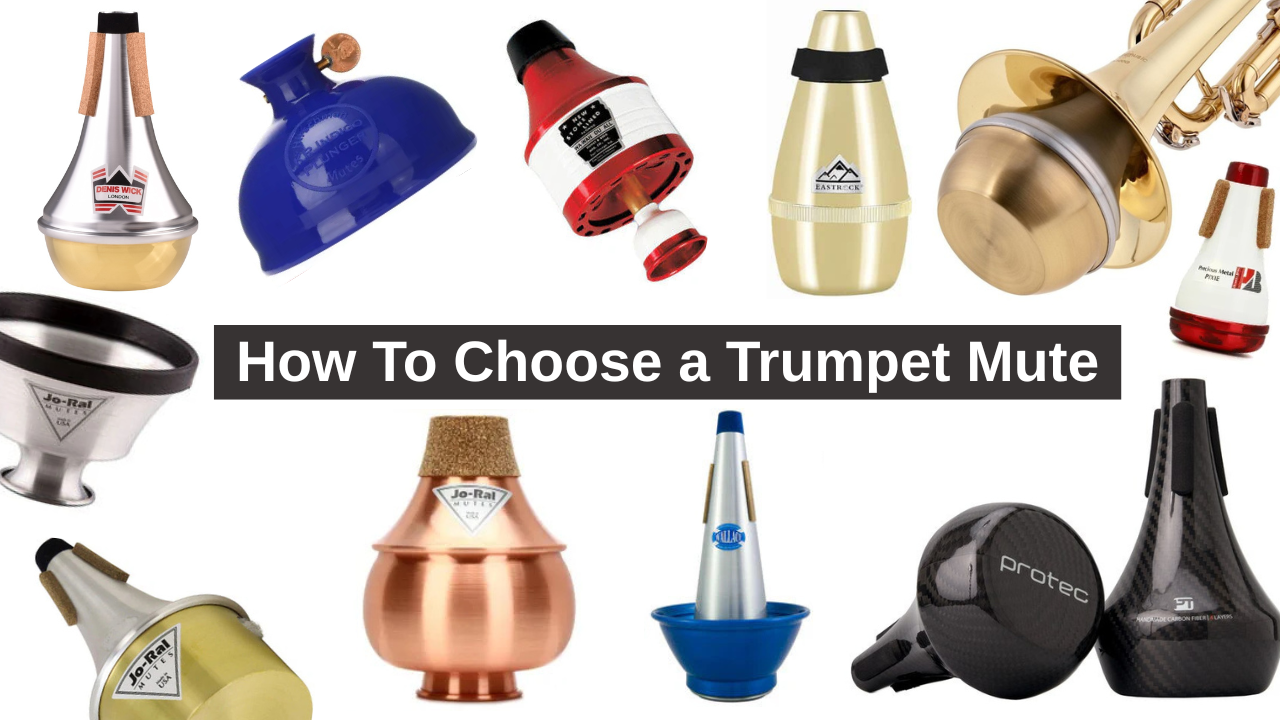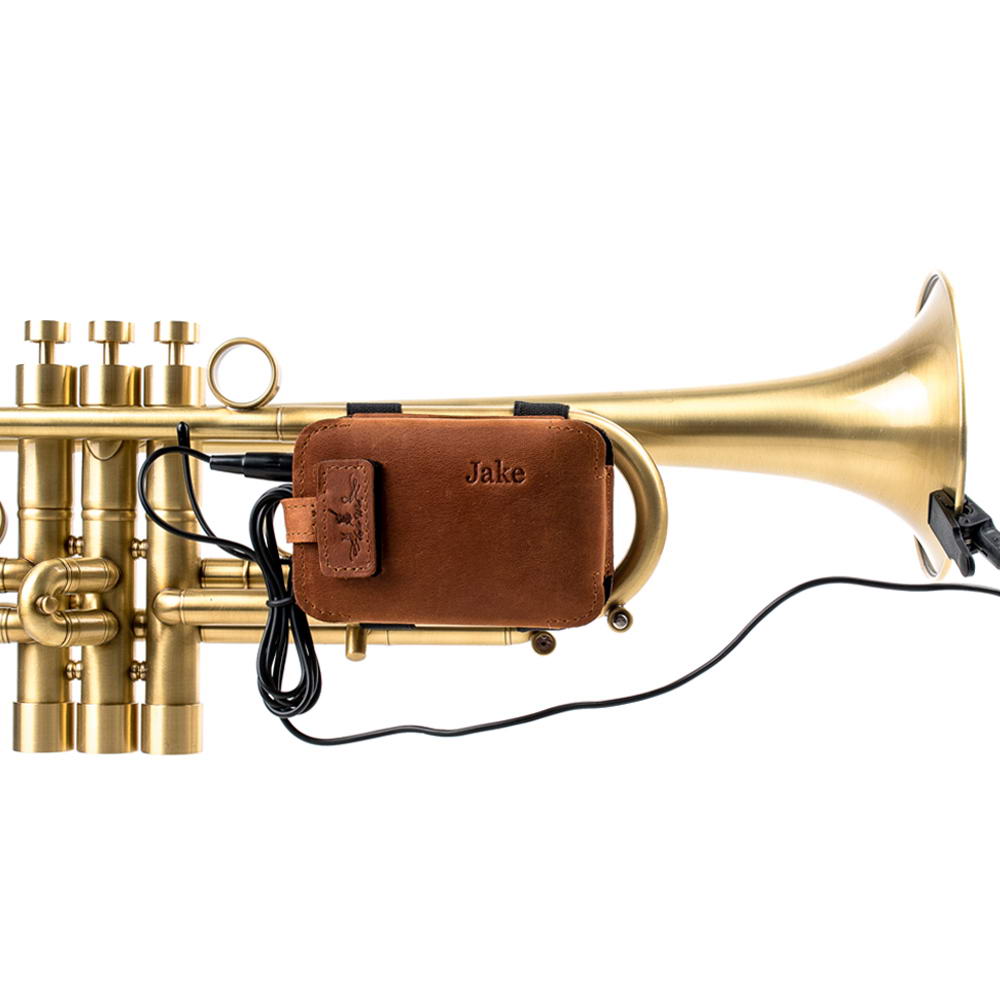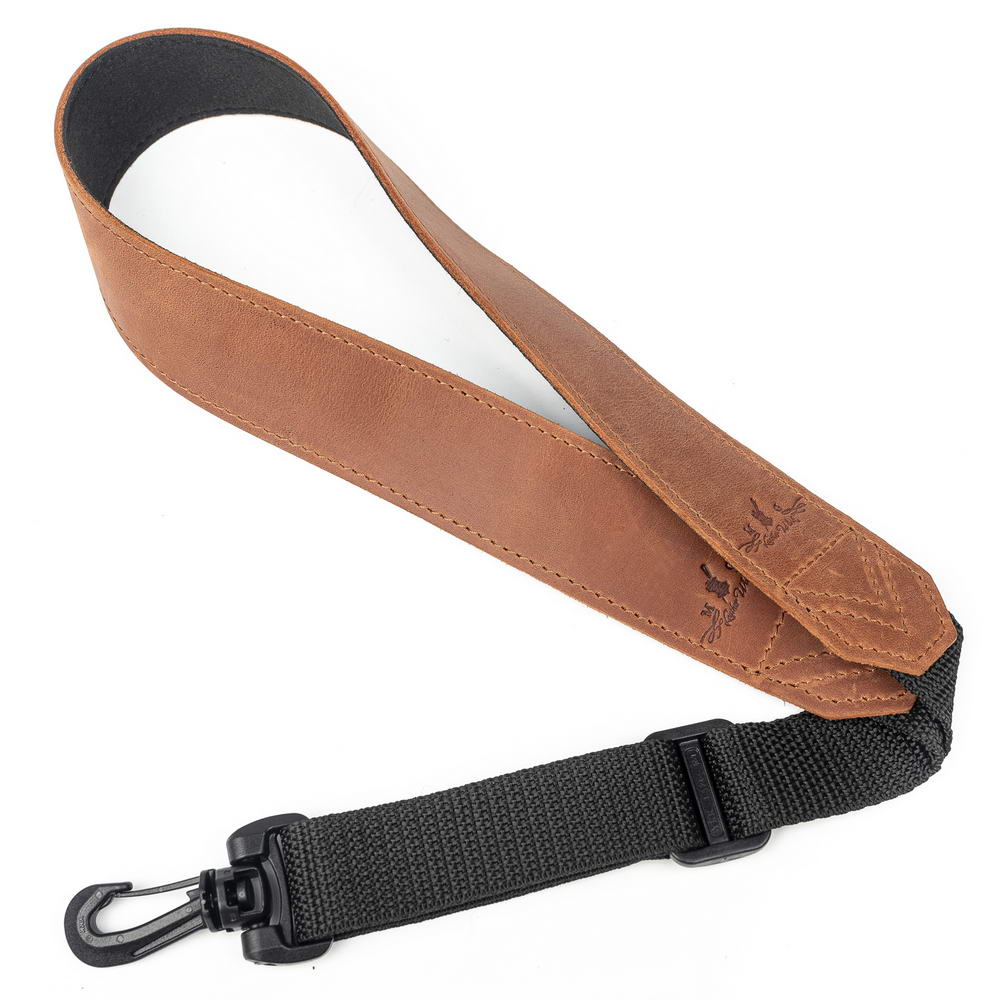
How to Care for Your Trumpet: Tips on Cleaning, Lubricating, and Storage
Whether you use a budget-friendly model of the trumpet or opt for an expensive representative of the brass family, proper maintenance and cleaning remains a key aspect of keeping it visually attractive with excellent playing characteristics. Caring for your instrument isn’t limited to just wiping off the fingerprints, although it’s an important part of the cleaning routine. In this article, we will provide a basic guide to how to clean your trumpet to extend its lifespan and enjoy practices and performances more.

Why You Should Clean Your Trumpet
The caring process should be a part of your artistic goals, as how your instrument looks and sounds directly impacts how you are perceived by the audience as a musician. Proper maintenance influences the following characteristics of your trumpet :
Sound. When properly cared for, your trumpet never sounds out of tune. Clean instrument’s tubing allows for the airflow to move without interruptions, resulting in smooth vibrations and better sound quality. When your instrument is clean it’s easier to control it, making it more responsive on your way to delivering desired emotions through your music.
Functionality. Your trumpet won’t function as the perfect system, unless it’s clean and properly-maintained. It’s impossible to expect your instrument to work accurately, if its valves are sticky and slides are jamming. That’s why it’s crucial to regularly lubricate these important parts of your trumpet alongside the slides. Well-lubricated valves and slides allow for precise notes with excellent intonation and fast movements without delays during fast-tempo passages.
Durability. When you clean your trumpet regularly, you prevent the accumulation of dirt and risks of corrosion, helping your instrument last longer. By doing this, you also prevent your trumpet from moisture, oils, and debris buildup, protecting it from rust and deterioration of its surface.
Saving Cost. If you care for your trumpet properly, you reduce the risk of damaged slides and stuck valves, which may require costly professional help. Well-lubricated instrument ensures a smooth function of all parts, minimizing mechanical damage.
Easy and Joyful Practices. When your instrument is clean, you won’t experience any blockage. It immediately responds to your touch, allowing for precise intonation. You easily transform your emotions into music, focusing only on sound and tone rather than any physical discomfort such as the need to blow into the mouthpiece harder. With a clean and properly cared for trumpet you start to get more pleasure from practices and rehearsals, keeping you more motivated, so you achieve progress with your musical goals faster and with less effort.
What Products You Need to Care For Your Trumpet
To properly care for your instrument, you need the following list of essential products:
- A microfiber or soft cloth. It will help you keep the surface clean and free of fingerprints.
- Valve oil. This is each trumpeter’s must-have, allowing you to keep the valves responsive.
- Tuning slide grease. This product helps trumpet slides move easily and not get stuck.
- A flexible snake brush. It allows for comfortable cleaning of the tubing from debris, dust, and moisture.
- A mouthpiece brush. It effectively cleans the mouthpiece from dirt and bacteria.
- Mild dish soap or a special brass instrument cleaner. You can add them to the water to help dirt easily come off the instrument and its parts.

How to Clean Your Trumpet
To ensure all your instrument’s parts work perfectly, you should give them daily, weekly, and monthly care.
Daily Trumpet Care
Caring for the instrument’s finish. After each practice session, rehearsal, and performance, your instrument will likely have lots of fingerprints, traces of moisture and oils from hands on its surface. To remove them and maintain an attractive gloss, you need to wipe off your trumpet with a soft, dry cloth or use a microfiber care towel.

Protecting the vulnerable parts. Areas of your trumpet that are regularly exposed to contact with your skin, are more vulnerable to rubbing, deterioration, and corrosion. To protect them from wear and damage you may use leather valve guards. Depending on the size, these accessories cover a lead pipe, the 1st and the 3rd valve slide finishes.
Cleaning the mouthpiece. After each practice session and performance, rinse your trumpet mouthpiece with warm water. This will prevent unpleasant odors and bacterial growth that can be very dangerous to your health. Use a mouthpiece brush to remove debris inside to prevent any blockage.

Storing your trumpet . Find a secure place reliably protected from moisture, high humidity, and extreme temperatures where there is no risk of sudden drop or shock to your instrument. To store your trumpet you can use storage bags, made of flannel fabric, which perfectly protect it from dust. To protect mouthpieces from any mechanical damage, contact with other essentials, and dirt during transport in your bag, you may use specially designed mouthpiece pouches to fit the number of pieces you typically use— from single holders to those for 4 and 7 mouthpieces.
Weekly Trumpet Care
Lubricating valves. Your instrument’s valves shouldn’t feel sticky. In case they do, lubricate each valve with a small amount of valve oil. Move them up and down to help distribute the oil. Avoid over-oiling.

Caring for slides. Slides shouldn’t feel difficult to adjust. If you face this issue, apply tuning slide grease and work the slides back and forth to distribute it.

Inspecting your instrument. Thoroughly explore each part of your trumpet . In case you find some damage, contact the specialist to prevent complications and expensive repairs.
Monthly Care: Deep Cleaning
Once a month your instrument needs a bath. Disassemble your trumpet by removing slides, valves and any other parts according to instructions from manufacturers.
Cleaning valves. Prepare warm water (30-40 0C) with mild soap in the glass or a cup. Insert the pistons of the valves that have holes into the water, carefully keeping tops and buttons dry to prevent their damage. Leave pistons soaking for 10 minutes. When the time runs out, take them out of water and wipe their pistons with a cloth. Use a valve brush to clean the valve casings. Use a corner of the cloth to clean inside the holes. Rinse them with clean water and leave them completely dry. Before reassembling the instrument, lubricate valves with the valve oil.

Cleaning the tube. Put a towel into the basin and fill it with water. Add a small amount of mild dish soap or brass instrument cleaner. Put the tube in the water and let it soak for 10–15 minutes. Use a flexible snake brush to remove dirt from the inside, by moving it back and forth through the tube. Pay attention to bends and curves, as dirt tends to accumulate there.

Cleaning tuning slides. Use warm, soapy water. To clean them from dust and particles, use a tuning slide brush. Before installing these parts back into the trumpet , apply a fingertip-sized amount of grease over the part of the slide that inserts into your instrument. Spread it in a thin layer and remove any excess with a paper towel. Repeat the procedure for all slides.

Conclusion
This was our basic guide to cleaning your trumpet . By regularly caring for your instrument, you ensure it stays in a top condition with all parts functioning smoothly and responding precisely to your touch. Clean trumpet makes lessons, rehearsals, and performances more rewarding. With a clean instrument it’s easier to express desired emotions and unlock your potential. What’s more, a clean instrument is a sign that you treat your musical career responsibly.

Explore more helpful accessories in our Trumpet category
Recently we’ve also shared an article about benefits of a Trumpet Mouthpiece Holder as one of the products that each trumpeter needs.
If you want to save money when purchasing our leather accessories with free embossing, take advantage of our SPECIAL OFFER.











 https://mgleatherwork.com/pages/about-us
https://mgleatherwork.com/pages/about-us





Leave a comment
This site is protected by hCaptcha and the hCaptcha Privacy Policy and Terms of Service apply.